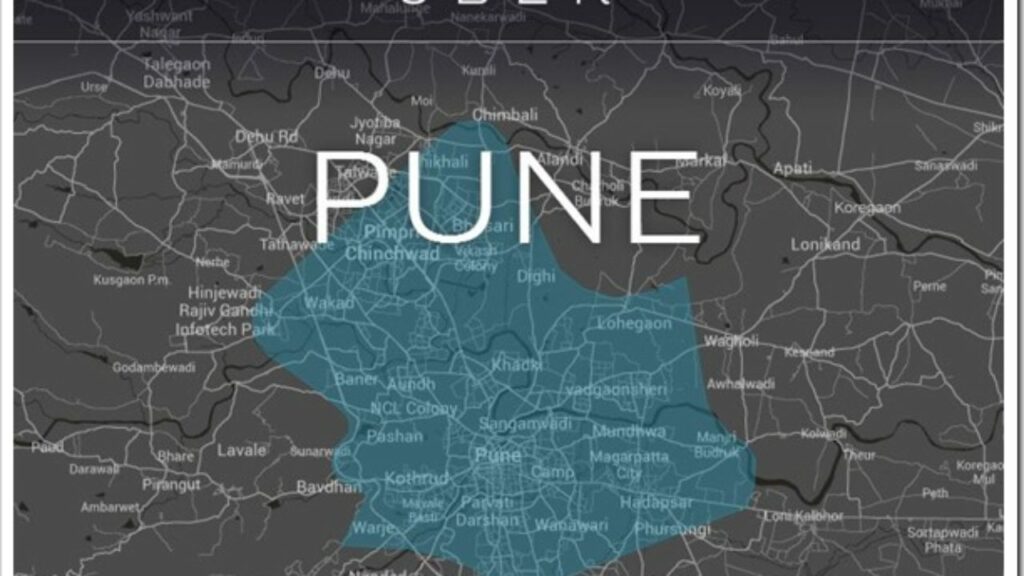The ambitious Smart City project, launched with much fanfare in 2016 by the Bharatiya Janata Party (BJP), aimed to revolutionize urban infrastructure in Pune. However, the initiative is now being wrapped up due to funding shortages and failed initiatives. Despite initial successes, the project has ultimately fallen short of its lofty goals.

Project Overview and Initial Success
The Pune Smart City Development Corporation Limited (PSCDCL) was established to spearhead this grand endeavor. Over eight years, PSCDCL managed to execute 45 projects worth ₹1,148 crore. The initiative included a variety of elements aimed at enhancing urban living, such as:
- Variable Message Displays (VMDs): 157 VMDs installed across the city to provide real-time information to citizens.
- Integrated Command and Control Center: A hub for monitoring and managing city operations.
- Adaptive Traffic Management System (ATMS): Designed to optimize traffic flow and reduce congestion.
These components were part of a broader vision to develop the Baner-Balewadi area, incorporating advanced traffic signal systems, parks, and other urban amenities. Despite these efforts, significant hurdles led to the project’s premature conclusion.
Funding Shortages and Incomplete Projects
One of the primary reasons for the project’s failure was severe funding shortages. The government withheld ₹58 crore in interest from the funds allocated to the Smart City, critically impacting several ongoing projects. This decision led to demands from the state’s urban development department for the release of these withheld funds. However, the financial constraints proved insurmountable, leading to incomplete projects and unmet objectives.
Transition of Responsibility
With the Smart City project being wrapped up, the responsibility for the existing Smart City assets has been transferred to the municipal corporation. Additional Commissioner Prithviraj BP is now tasked with overseeing the transition, which includes the inspection and management of these assets. Some of the key assets being transferred include:
- Variable Message Displays (VMDs): An evaluation of their operational status will be conducted, and tenders will be issued to generate revenue from these assets.
- Integrated Command and Control Center and ATMS: These systems will also be assessed and managed by the municipal corporation.
The transition aims to ensure that the investments made so far are not wasted and that the city continues to benefit from the infrastructure developed under the Smart City initiative.
Lessons Learned
The demise of Pune’s Smart City project offers several important lessons for future urban development initiatives:
- Sustainable Funding: Adequate and sustained funding is crucial for the successful execution of large-scale urban projects. The withholding of funds can severely disrupt progress and lead to project failure.
- Project Management: Effective project management, including timely completion and maintenance of initiatives, is essential to avoid leaving projects incomplete.
- Government Support: Continuous support from the government, including financial and administrative backing, is vital for the longevity and success of urban development projects.
- Public-Private Collaboration: Engaging both public and private sectors can help secure the necessary resources and expertise to overcome financial and operational challenges.
Conclusion
The Smart City project in Pune, despite its initial promise, has ultimately fallen short due to funding shortages and incomplete projects. As the responsibility transitions to the municipal corporation, there is hope that the existing infrastructure will still benefit the city. Moving forward, future initiatives can learn from these challenges to ensure more robust planning, sustainable funding, and effective execution.
Key Components of Pune’s Smart City Project
| Component | Description | Status |
|---|---|---|
| Variable Message Displays (VMDs) | 157 displays providing real-time information | Being evaluated |
| Integrated Command and Control Center | Hub for monitoring and managing city operations | Transferred |
| Adaptive Traffic Management System (ATMS) | System to optimize traffic flow | Transferred |
| Projects Executed | 45 projects worth ₹1,148 crore | Completed/Incomplete |












